Dragons, Maleficent, and Echoes Of Groaning Earth
Seven years ago I may have hated Maleficent and would have been nervous about some themes of How to Train Your Dragon.
I would have thought: Why do these stories attempt to show that “evil” isn’t always evil, or what we think is good isn’t always good? Why is mankind seen as bad and nature seen as good? Are these stories trying to subvert traditional concepts of right and wrong?
Some stories do attempt this.1
But thanks to Biblical theology, I no longer have that objection to all such stories.
How come?
Because I believe that in the real world, between pure good and worst evil lies a third party. If our view of the True Story includes only God (good) and man (bad), we’ll be confused when stories explore how this third party — the creation itself — plays in the story.
‘Maleficent’
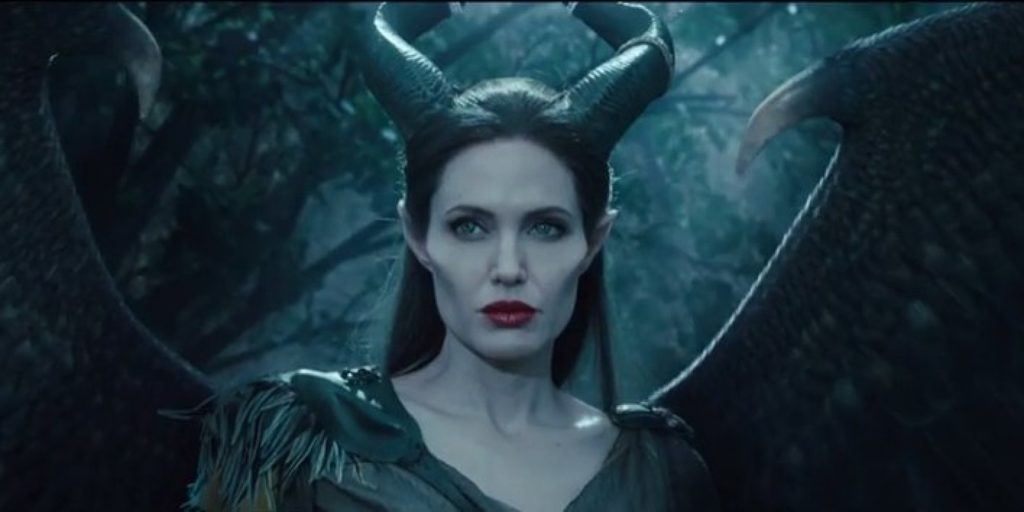
In Maleficent, the witch of Sleeping Beauty is recast as an originally good guardian of innocent creation.
On May 30 Disney released its latest live-action fairy-tale adaptation, this one based on the 1959 film Sleeping Beauty and starring another version of that film’s famous villainess.
Movieguide didn’t like it. Spoilers ahead:
The movie will confuse viewers about who the villain is. Although Maleficent has put a curse upon Aurora, her heart is changed, but she still uses magic. Then, toward the end of the movie, the villain becomes Stefan, the father, who wants to take down the forest and kill Maleficent. This leaves viewers confused on who’s the real hero.
Well, this viewer is not always the brightest smartphone screen in a darkened theater, but even I understood who the real heroes were. It sounds like Movieguide’s reviewer expected a retelling of Sleeping Beauty, not a different story with similar characters.
But I can understand not knowing what to “do” with a traditional villainess who suddenly gets a new and more-redemptive journey. What are they trying to pull?
The solution is this: the story recasts Maleficent from a plain witch to a forest guardian. She protects the natural realm of Faerie, a paradise of mostly CG gnomes, tree-beings, and sparkling unknown air-spirits. When a young boy who wanders into the forest and repents of trying to steal a precious stone, Maleficent befriends and later falls in love with him. But the boy becomes a power-seeking man who naturally betrays her love — for reasons many viewers did not get but Christians familiar with “total depravity” will comprehend. And Maleficent, now a strong yet feminine queen (portrayed dazzlingly by Angelina Jolie), wars against the armies of man’s kingdom who seek to despoil the forest.
Or as Movieguide oversimplifies:
There’s an environmentalist message to the movie where mankind is the problem, destroying the forest and bringing in iron, which hurts the fairies.
Does the story imply that man is the problem and nature is good? Not if you pay attention. Yes, Maleficent represents an icon of nature. But in her anger against man she herself turns the forest dark and frightens the gnomes and fairies — and later regrets her vengeful curse on Princess Aurora. The story is more complex. Both man and creation must be redeemed.
‘How to Train Your Dragon’
On Monday Rebecca LuElla Miller posted an updated article about Dreamworks’ smash 2010 hit film, whose sequel will release this Friday. She cautioned viewers not to consider any story “safe.” Amen! If you go into this story expecting binary categories of right and wrong (man is good/bad, dragons are good/bad), you will be confused.
Who is the story’s “bad” — man, shown by the Vikings? If so, why do we love these heroes, especially spunky dragon-trainer Hiccup? Who is the story’s “good” — the dragons? If so, why are the wild dragons genuinely dangerous? And in either case, why does victory come after estranged father Stoick and son Hiccup both admit their human wrongs and reconcile, and when Hiccup rides his new dragon Toothless into a spectacular battle against a gargantuan, fire-breathing, traditionally evil dragon?
In How to Train Your Dragon, man and creation must reconcile. By the story’s end, Vikings and dragons have learned to work together and find redemption. Yet man has not simply become “at one with nature,” as if wild nature is superior. Instead man has stopped sinning against nature and become a better nature-steward. The meaning is right there in the title: it’s not “how to be trained by your dragon,” but “how to train your dragon.”2
Echoes of groaning Earth
I don’t know the intentions of the Maleficent or How to Train Your Dragon creators. But I do know their subversions of traditional “villains” like an evil fairy-witch or dragons need not be seen as attacks on Biblical morality. In fact, they echo the Biblical truth of creation’s redemption.
- Mankind sins against God (Gen. 3). It’s man’s fault.
- God curses the ground (Gen. 3: 17–19). But it’s not creation’s fault.
- Ever since, mankind has had a love/hate relationship with creation.
- Jesus Christ comes to redeem His children.
- And someday even “the creation itself will be set free from its bondage to corruption and obtain the freedom of the glory of the children of God” (Rom. 8:21).
Until that day, “the whole creation has been groaning together in the pains of childbirth until now” (Rom. 8:22). Groaning creation lashes back at mankind. Evil Faerie queens weep with rage at our betrayal. Dragons in ignorance or fear blast our homes and even kill us. But just these stories end in hope — the evil fairy redeemed and reconciled with man’s kingdom, the fearful dragons now friendly and tamed — so Jesus Christ will make His redeemed world where man’s and creation’s groaning turns to singing.
- If they do, a disciplined Christian can see them for what they are and even subvert the subversion by showing how the evil-thing-isn’t-really-evil stories still show that something is absolute evil. Such stories always do. ↩
- The film’s sequel may challenge the concept of “training” a dragon, versus a sort of Jane Goodall-style living-among-dragons practice. Anyway, if I was writing the sequel, that’s what I would do. ↩































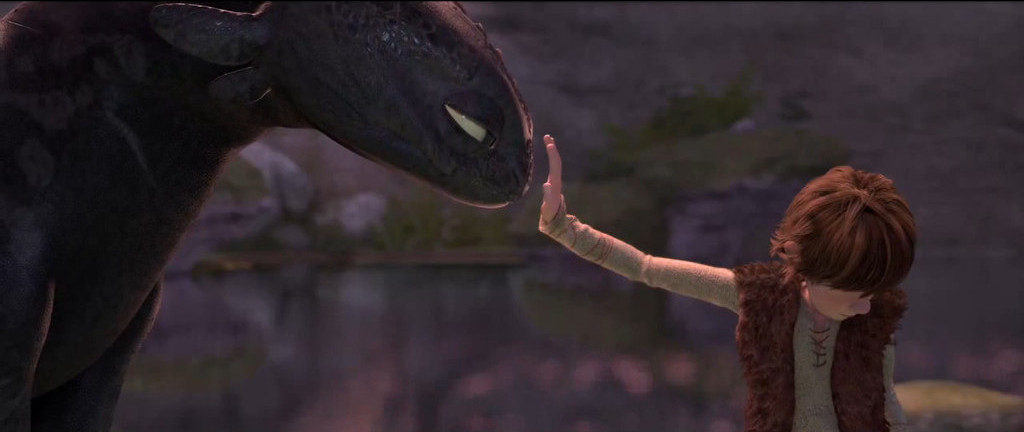
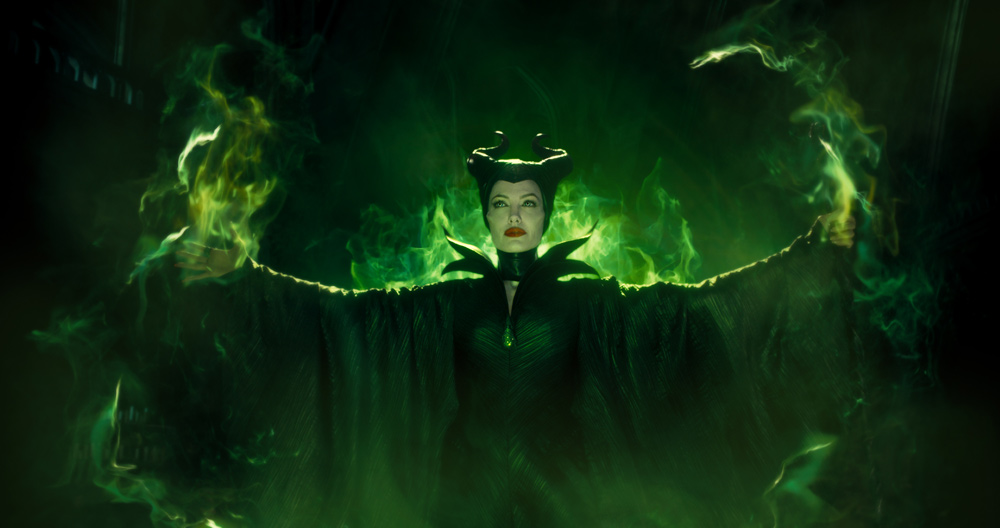
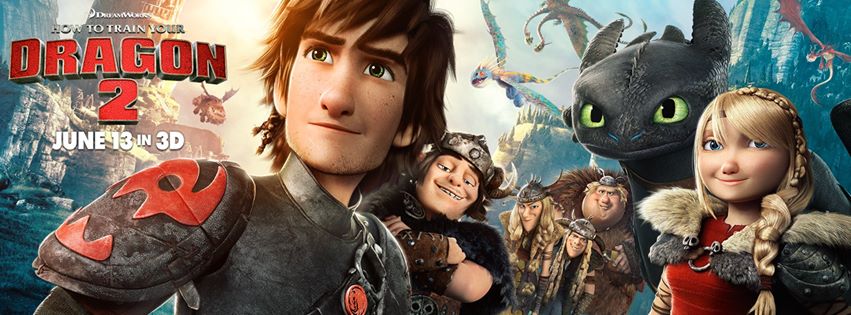



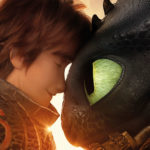




I don’t mind stories showing more moral complexity. That can be interesting.
However, it seems clear our current culture is profoundly uncomfortable with the concept of moral clarity. Which is something fairy tales, at least the Disney versions, always provided. Perhaps that’s not just because (realistically) everyone is both good and evil and new stories are portraying people as such, but rather because so many modern people believe that good and evil don’t even exist at all in any objective sense. ALL is in the “eye of the beholder”…so there is no “real” evil that can be realistically portrayed…
Travis, that’s just would I would originally think. And yet, at least in both these films, moral clarity is certainly there. It’s simply found in different way.
In Maleficent (spoilers) there is absolute good and absolute evil. Princess Aurora and the good fairies and gnomes of the forest are unqualified images of innocence. The evil king who experiences a fall from grace and in turn enslaves a kingdom is an unqualified image of evil — perhaps the starkest cinematic portrayal of unregenerate man I’ve seen in a while. And Maleficent, despite her popularity as unregenerate evil in the original Sleeping Beauty, is here recast as someone who is corrupted by sinful man and begins her journey of vengeance and darkness — and yet takes another turn.
In How to Train Your Dragon (and I would hope its sequel), there is also absolute good and absolute evil. The heroic Vikings, especially pioneering misfit Hiccup, are only partly qualified images of good — though they are certainly misguided at first about the best way to deal with pesky wild dragons. (The solution is not simply to kill them, but to train them.) The dragons are also partly qualified images of good, and can be seen as an honest portrayal of post-Fall creation: when wild they are shrewd but often ignorant, and when honestly tamed they are the best friends that good-stewarding man could have. As for absolute evil, it’s unqualifyingly shown in the form of a very traditional, fire-breathing beast who lies gorging itself within a mountain, consuming the prey it’s brought by enslaved smaller dragons.
So at least in these films, I don’t see any bent toward relativism. Instead the stories explore the same old conflicts of man’s sinful-yet-graced nature, creation’s subjection to the Curse that is undone starting with man’s redemption, and also straight-up evil that is ultimately non-nuanced and is tragically never redeemed.
Spoiler for How to Train Your Dragon 2. I just dared to read one positive review of the upcoming film, which quotes one character:
If that’s left unchallenged, it sounds like the sequel also includes clear images of evil and places ultimate blame where it belongs: not on nature but on nature’s steward.
And I’m over here wondering why you keep up the black-white dichotomy even when it doesn’t fit. I’ll give you the benefit of the doubt and assume you’re playing devil’s advocate for black-and-white, but why are we assuming that the Christian audience needs someone to ‘splain shades-of-gray to them?
I’m not sure what you’re talking about. Are you sure you are not yourself black-and-white-dichotomizing my view into some pre-existing category? What “doesn’t fit”? I’m quite serious about my view. It may not be necessary to say, “These stories aren’t trying to say ‘evil isn’t isn’t,'” in order to defend the fact that discerning Christians could still see them. But it’s certainly helpful to add, “In fact, the views these stories have are very Biblical.”
I’ve always assumed that explaining “shades of gray” to Christian subcultures is one of the core purposes of Speculative Faith. I wasn’t really immersed in much of the subculture despite growing up in a conservative Baptist community, but still when I first started reading this site, “Harry Potter isn’t really about witchcraft!” was news to me.
Don’t think that fundamentalists are all cranky and obtuse on purpose. Sometimes, they’ve simply been misinformed about media and culture. Explaining subtlety to them may actually win “converts” to speculative fiction and perhaps also to a more positive way of expressing faith.
#KindredSpirits
That’s exactly the reason I’m here doing this myself. Someone — actually, a whole bunch of someones — didn’t dehumanize this former homeschool brat or relegate him to a mean category of “just another cultural fundamentalist.” Instead, a whole bunch of someones cumulatively reached out “to” me with careful teaching and explanation through the form of personal involvement or books, sermons, etc. And I see no reason to “fight fire with fire” by shunning any and all “fundamentalists” as if they’re all evil.
It is true that I’m impatient with it because I’m tired of it. I probably just need to take a break from this site, especially with this current rash of what feels like paranoia-mongering to me.
But before I go, I want to solidly plug my local writer bro’s book Galendor Ye Dude From Yonder Forest. It’s genre-savvy, fairy tale/fantasy YA, and it is full of awesome. And it namedrops God enough that it should make everyone here comfortable. It even has a scene straight out of the Baptist Guide to Casual Witnessing. I will be blarging about it–sometime. Hopefully within this next week. I submitted it to the SF Library, but I don’t know how fast editorial wheels around here turn and I wanted to make sure people know about it.
So, it contains Christian pick-up lines? 😉
I agree with this. The safety thing-you have to realize that some of us grew up with a lot of ham-handed warnings about safe and unsafe fiction, and it’s a touchy subject. Too many posts on it, especially if they aren’t really careful about the examples they use, can turn people off.
I had my parents literally throw out books that they thought were demonic, and had to deal with a lot of issues about a fundamentalist interpretation of pop culture. I know I probably could be called a fundamentalist now, but I remember being lambasted in church in public because I mentioned I like SF, and I overcompensated badly in the other direction not just as a rebellion, but to keep myself sane. I’m not saying this because I want to hear “poor D.M.” but instead so people can realize that you really need to be careful about that topic.
Just be careful how much you push the need for discernment. There is a place to talk about it, but don’t let safety discussions dominate the site.
I got tired of the subject of safe fiction a long time ago. Most of the time the discussion seems superficial to me.
Thanks for your insight into the “third party” of creation. There is a knee-jerk reaction among conservative Christian circles where anything to do with taking care of the environment, from recycling to acknowledging that car emissions do indeed have a negative effect on air quality, is scorned as being “liberal” and somehow un-Christian. In fact, it’s a biblical mandate, because we were given creation to steward and nurture, not to use and abuse with callous abandon.
Interesting how Maleficent becomes a metaphor for environmentalism. Also, the wing-tearing scene looks like <a href=”http://www.ranker.com/list/maleficent-movie-quotes/movie-and-tv-quotes”>one of the pivotal moments of the movie</a>. And if what I heard is true, that’s a metaphor for violation of women. That’s an interesting take.